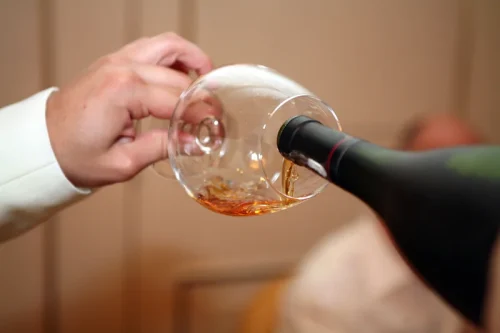Alcoholic Narcissist Alcohol And Narcissistic Personality Disorder

The cycle of addiction and narcissism is complex and can be challenging to break. While it’s true that drinking can temporarily satisfy your emotional needs and desire for attention, this reprieve is short-lived and often leads to alcohol-related problems and dangerous situations. Understanding the link between your addiction and narcissism allows you to be more mindful of the factors that contribute to your drinking problem. Also, people with AUD might seem to behave similarly to people with narcissistic traits. When dealing with a covert narcissist, watch out for subtle signs that may go unnoticed by others. They can be masters of manipulation, using gaslighting and guilt-tripping to control situations.

Getting Revenge on a Narcissistic Sociopath: Strategies & Self-Protection Essentials

Covert narcissists lack the recognition that lots of people have difficult times. When called out, someone may respond by exhibiting more harmful behaviors like passive aggression or gaslighting. This may be because low self-esteem is often the reason for these behaviors, as one study highlighted when looking at the connection between cyberbullying and covert narcissism. Although it may be impossible to prevent NPD, people can take steps to reduce the risk of developing additional disorders through the understanding that it is common for substance misuse disorders to co-occur.
Traits of Covert Narcissists
Below, experts share some things covert narcissists say, plus other covert narcissist traits to recognize. Calling out covert narcissism can be difficult, but it starts with being mindful of behavioral patterns and paying attention to that gut feeling you have when something feels a little off. This introvertive form of narcissism, called covert narcissism, may cause people to be more sensitive to criticism, have difficulty fitting in and become self-deprecating in an attempt to garner attention from others.

Can a Therapist Spot a Covert Narcissist?

In his book, The Narcissist You Know, Joseph Burgo includes the „Addicted Narcissist“ as one type of Extreme Narcissism. By implementing these approaches, you can navigate your relationship with a covert narcissist more effectively while safeguarding your emotional health and well-being. Remember, it’s essential to prioritize self-care and establish boundaries to protect yourself in challenging interactions. Practice emotional distance to shield yourself from the impact of a covert narcissist’s behavior.
What Is A Narcissistic Personality Disorder?
- In moments of setbacks, prioritize self-care to replenish your emotional reserves.
- This combination can potentially lead to more pronounced harmful behaviors and strained relationships.
- Setting and enforcing clear boundaries is essential to safeguarding your mental health and preventing the enabling of destructive patterns.
- Dealing with a covert narcissist can be emotionally draining and leave you questioning your own worth.
However, it is more likely that the alcoholic is trying to surround themselves with others that support these extreme drinking habits. These individuals will debate, argue, distract, or back you into a corner, due to the way alcohol affects them. An alcoholic can exhibit symptoms of Narcissistic Personality Disorder (NPD), but usually not enough to be diagnosed. It’s essential to recognize the signs of manipulation and take proactive steps to address the situation. Such behavior can have detrimental effects on the child’s perception of reality and their emotional well-being. Communal narcissists tend to prioritize self-promotion through perceived contributions to others, often seeking admiration and validation.
While it’s important to empathize, maintaining a healthy emotional distance can prevent you drug addiction treatment from internalizing their manipulative tactics or emotional toxicity. Personality disorders are mental health conditions involving pervasive and often destructive personality traits. At Sabino Recovery, a renowned addiction treatment center, you will have access to expert resources and support tailor-made to treat the psychological and emotional consequences of alcoholic narcissism. They will support you through the journey of overcoming addiction and dealing with the underlying personality issues, which will ultimately pave the way for a healthier, happier life. Alcohol addiction may serve as a coping mechanism or defense against feelings of guilt, inadequacy, and low self-esteem.
- Covert narcissists rely on manipulation through the guise of sweetness, all the while harboring hidden intentions that serve their own needs above all else.
- A lack of empathy makes it hard for someone with covert narcissism to step into other people’s shoes.
- These contrasting traits can lead to power imbalances within the relationship, with the covert narcissist exerting control through manipulation and gaslighting tactics.
- Research supports the link between some narcissistic traits and alcohol use.
- It’s essential to focus on genuine connections and acts of kindness rather than seeking validation from those who exhibit narcissistic tendencies.
Narcissists can be covert, overt, or both
The need for constant validation and a perceived lack of appreciation can lead to self-destructive behaviors. Seeking professional help for managing these tendencies is crucial for maintaining a healthy lifestyle. Narcissistic personality disorder (NPD) and alcohol use disorder (AUD) are closely linked. Both are mental health conditions that can damage relationships, cause personal distress, and undermine a person’s quality of life and sense of well-being. Once they receive this affirmation, they experience grandiosity and may behave in an arrogant and entitled way.
Overt Narcissists Use Blatant Attention, While Covert Ones Use Subtle Manipulation
Again, if care is not coordinated by a qualified mental health professional, the overlapping treatments can lead to drug interactions, unintended side effects, and the possible abandonment of treatment. For instance, NPD and AUD both involve psychotherapy, but the formats for each can vary. For NPD, it may involve individual or group counseling using cognitive behavioral therapy, schema-focused therapy, and dialectical behavior therapy. For AUD, group approaches such as AA and other twelve-step addiction programs are common. All personality and substance use disorders are diagnosed based on a strict set of criteria described in the DSM-5. While there is room for interpretation, a person with NPD and/or AUD must meet a minimum standard before a diagnosis can be delivered with confidence.
- “It’s feeling inadequate or feeling insufficient, and at the same time feeling sort of resentful toward others and feeling like you’re not getting your fair share or due in the world,” Miller says.
- Recognizing these traits is crucial in safeguarding oneself from falling victim to the harmful effects of covert narcissists in various social and personal settings.
- Treatment centers can also ensure that you can access the right support systems at the right time in your treatment.

They are easily offended, insulted and sensitive about their own feelings … but not yours. If they see a psychotherapist, it will have to be one who supports their self-image. Overt narcissists avoid knowing themselves by disdaining all true self-examination and living an externally-based life. Remind yourself of the manipulative patterns and tactics employed https://ecosoberhouse.com/ by covert narcissists. Acknowledge that setbacks are part of the dynamic and not a reflection of your worth. By staying grounded in reality, you can better identify and address any setbacks that may arise.
In this article, you’ll covert narcissist alcoholic discover effective strategies to navigate the complex dynamics of a relationship with a covert narcissist. From setting boundaries to reclaiming your sense of self, you’ll learn how to empower yourself and potentially shift the power balance in your favor. By understanding the patterns of behavior and implementing practical tips, you can begin the journey towards regaining control and finding peace of mind in your interactions with a covert narcissist. Healthcare professionals may ask people about their drinking habits to assess AUD. A psychiatrist may carry out a standard psychiatric interview, which healthcare professionals use to diagnose personality disorders.











